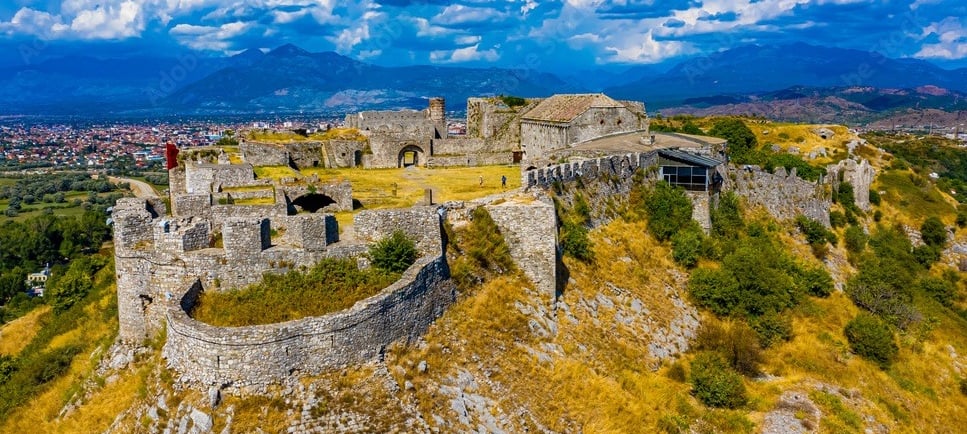A Tapestry of Time: Exploring the Rich Cultural Heritage of Albania
A deep journey into cultural heritage of Albania.
CULTURE
1/30/20252 min read


Nestled in the heart of the Balkans, Albania boasts a captivating history, its culture woven from threads of ancient Illyrian heritage, Roman and Byzantine influences, and centuries of Ottoman rule. This unique blend has shaped a nation with a vibrant identity, expressed through its traditions, arts, and resilient spirit
Ancient Roots and Roman Echoes
The story of Albanian culture begins with the Illyrians, an Indo-European people who inhabited the region for millennia. Their legacy is evident in the Albanian language, one of the oldest in Europe, and in archaeological sites like Butrint, a UNESCO World Heritage Site showcasing Illyrian, Greek, and Roman layers of civilization. The Romans, who conquered the region in the 2nd century BC, left their mark through infrastructure, language influences, and the spread of Christianity.
Byzantine Influence and the Rise of Christianity
With the division of the Roman Empire, Albania became part of the Byzantine Empire, further enriching its cultural landscape. Byzantine art, particularly in the form of icons and frescoes, flourished, adorning churches and monasteries across the country. This period also saw the consolidation of Christianity as the dominant religion, shaping social structures and artistic expression.
Ottoman Era and a Cultural Crossroads
The Ottoman Empire's arrival in the 15th century brought significant changes. Islam became prevalent, particularly in urban areas, and Ottoman architectural styles influenced the cityscape. However, Albanian identity and traditions persisted, often through resistance movements and the preservation of cultural practices in rural communities. This era created a fascinating cultural mosaic, where different religions and traditions coexisted, contributing to Albania's unique character.
Independence and National Identity
After centuries of Ottoman rule, Albania declared independence in 1912. This pivotal moment sparked a renewed focus on national identity, with efforts to standardize the Albanian language, promote national literature, and revive traditional arts. The interwar period saw a flourishing of cultural expression, reflecting a desire to forge a distinct Albanian identity in the modern world.
The Communist Era and Cultural Preservation
The communist regime that followed World War II significantly impacted Albanian culture. While religious practices were suppressed, the government invested in preserving and promoting folk traditions, music, and dance. This period, though marked by isolation, also fostered a sense of national unity and cultural pride.
Contemporary Albania: A Cultural Renaissance
Since the fall of communism in the early 1990s, Albania has experienced a cultural renaissance. There's a renewed interest in exploring and celebrating the country's diverse heritage, from its ancient roots to its more recent past. Albanian artists, writers, and musicians are making their mark on the international stage, while preserving traditional forms of expression.
A Living Culture
Today, Albanian culture is a vibrant tapestry woven from the threads of its rich history. The country's traditions, cuisine, music, and arts reflect a unique blend of influences, creating a captivating cultural landscape.
Whether exploring ancient ruins, listening to the haunting melodies of traditional folk music, or enjoying the warmth of Albanian hospitality, visitors will discover a nation proud of its heritage and eager to share it with the world.
Explore
Discover Albania through local experiences and insights.
Connect
Engage
info@albaniabylocals.com
© 2025. All rights reserved.
